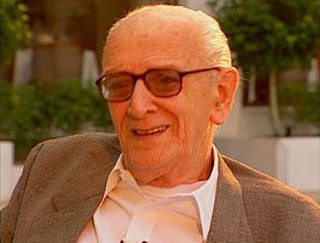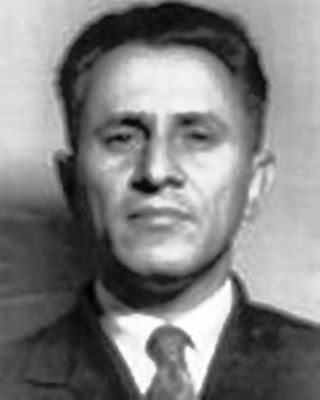
Luís Carlos Prestes was a Brazilian revolutionary and politician who served as the general-secretary of the Brazilian Communist Party from 1943 to 1980 and a senator for the Federal District from 1946 to 1948. One of the leading communists in Brazil, Prestes has been regarded by many as one of Brazil's most charismatic yet tragic figures for his leadership of the 1924 tenentist revolt and his subsequent work with the Brazilian communist movement. The 1924 expedition earned Prestes the nickname The Knight of Hope.

The Communist Party of Brazil is a political party in Brazil. The PCdoB officially adheres to Marxist–Leninist theory. It has national reach and deep penetration in the trade union and student movements, but little representation in elected positions.

The Brazilian Communist Party, originally the Communist Party of Brazil, is a communist party in Brazil, founded on 25 March 1922. Arguably the oldest active political party in Brazil, it played an important role in the country's 20th-century history despite the relatively small number of members. A factional dispute led to the formation of PCdoB in the 1960s, though both communist parties were united in opposition to the Brazilian military government that ruled from 1964 to 1985. But with the fall of the Soviet Union and the collapse of communism circa 1990, the party lost power and international support. An internal coup in 1992 divided the party and formed a new party, called Popular Socialist Party, using the former identification number of the PCB, 23. That party has since moved towards the centre and now goes by the name Cidadania.

Olga Benário Prestes was a German-Brazilian communist militant executed by Nazi Germany.

Olga is a 2004 Brazilian biographical drama film directed by Jayme Monjardim from a screenplay by Rita Buzzar, based on the 1985 biography of the same name by Fernando Morais. It was Brazil's submission to the 77th Academy Awards for the Academy Award for Best Foreign Language Film, but was not accepted as a nominee.
Socialism in Brazil is generally thought to trace back to the first half of the 19th century. There are documents evidencing the diffusion of socialist ideas since then, but these were individual initiatives with no ability to form groups with actual political activism.

The Coluna Prestes, also known as Coluna Miguel Costa-Prestes, in English Prestes Column, was a social rebel movement that broke out in Brazil between 1924 and 1927, with links to the Tenente revolts. The rebellion's ideology was diffuse, but the main issues that caused it were the general dissatisfaction with the oligarchic First Brazilian Republic, the demand for the institution of the secret ballot, and the defense of better public education. The rebels marched some 25,000 km through the Brazilian countryside. They did not aim to defeat the forces of the Federal government in battle, but rather to ensure their survival and their ability to continue threatening the government.

The Brazilian Constitution of 1937, promulgated by President Getúlio Vargas on November 10, 1937, was Brazil's fourth constitution and the third of the republican period. It was instituted on the same day as the installation of the Estado Novo, Vargas' dictatorial regime, and aimed to legitimize his powers. The text was inspired by the sanationist structure of the April Constitution of Poland, which was extremely centralizing and granted unlimited powers to the President. It was drafted by the jurist Francisco Campos, Minister of Justice, and obtained the prior approval of Vargas and General Eurico Gaspar Dutra, Minister of War.

Events in the year 1925 in Brazil.

Eugênia Álvaro Moreyra was a Brazilian journalist, actress and theater director, who became president of the professional theater union. A feminist pioneer, she was a leader of the suffrage campaign in Brazil. She was also linked to the Brazilian modernist movement and was a staunch defender of Communist ideals. She was married to the poet and writer Álvaro Moreyra, who played a major role in the renewal of the Brazilian theater, organizing cultural popularization campaigns and working as an actress, director, translator, declaimer and later president of the union of theater professionals.
Maria Morais Werneck de Castro was a Brazilian lawyer, militant communist, and feminist.

The Brazilian communist uprising of 1935 was a military revolt in Brazil led by Luís Carlos Prestes and leftist low-rank military against Getúlio Vargas's government on behalf of the National Liberation Alliance. It took place in the cities of Natal, Recife, and the capital Rio de Janeiro between 23 and 27 November 1935. The uprising was supported by the Brazilian Communist Party (PCB), then called the Communist Party of Brazil, and the Communist International.
Prestes is a Brazilian surname. Notable people called Prestes include:
José Carlos de Assis is a Brazilian economist. He holds a PhD in Production Engineering from the Federal University of Rio de Janeiro, and is professor of International Economics at the State University of Paraíba and has authored over 20 books on political economy.

Mário Lago OMC was a Brazilian lawyer, poet, broadcaster, composer and actor.
The Communist League was a grouping of the Left Opposition in Brazil, formed in 1931, operating within the Brazilian Communist Party (PCB) and which gave rise, in 1934, to the Internationalist Communist League, an organization formed by Mario Pedrosa, Lívio Xavier, Fúlvio Abramo, Aristides Lobo, Benjamin Péret, Rodolfo Coutinho, Wenceslau Escobar Azambuja, among other PCB activists and union members such as Joaquim Barbosa, João Costa Pimenta (trade union veteran, grandfather of Rui Costa Pimenta, who in the future would be leader of the Workers' Cause Party, Leonel Pessoa, João Dalla Dea.

João Cabanas was a Brazilian military officer in the São Paulo State Public Force, currently the São Paulo State Military Police. Cabanas graduated from the São Paulo Public Force Officer School and also graduated with a bachelor's degree of Law from the São Paulo Law School.

Altamira Rodrigues Sobral Prestes, known by the pseudonym Maria Prestes, was an activist with the Brazilian Communist Party and the second wife of the party's longtime leader Luís Carlos Prestes.

Octávio Brandão Rego was a Brazilian pharmacist, politician and activist. He was also a militant and theoretician in the Brazilian Communist Party, a movement that influenced a generation of left-wing activists and was responsible for spreading Marxist concepts in Brazil.
The National Liberation Alliance was a left-wing movement formed by sectors of different anti-imperialist, anti-fascist and anti-integralist organizations. The collective had the support of the Brazilian Communist Party.















